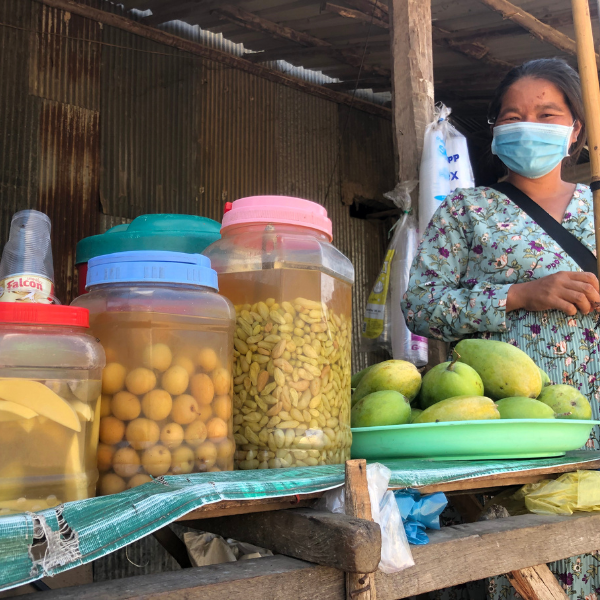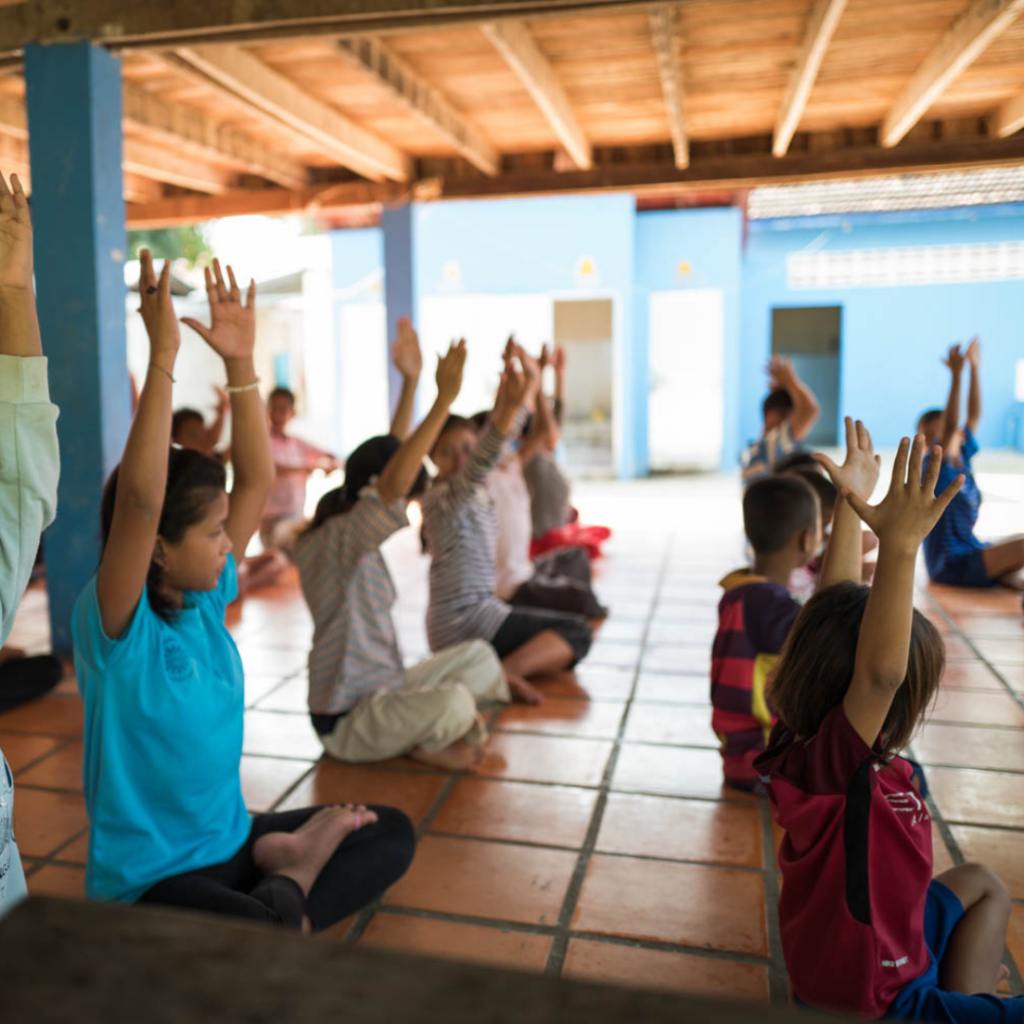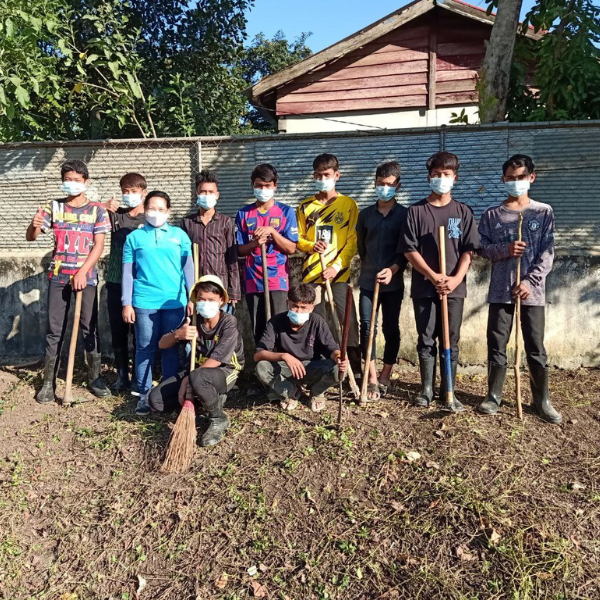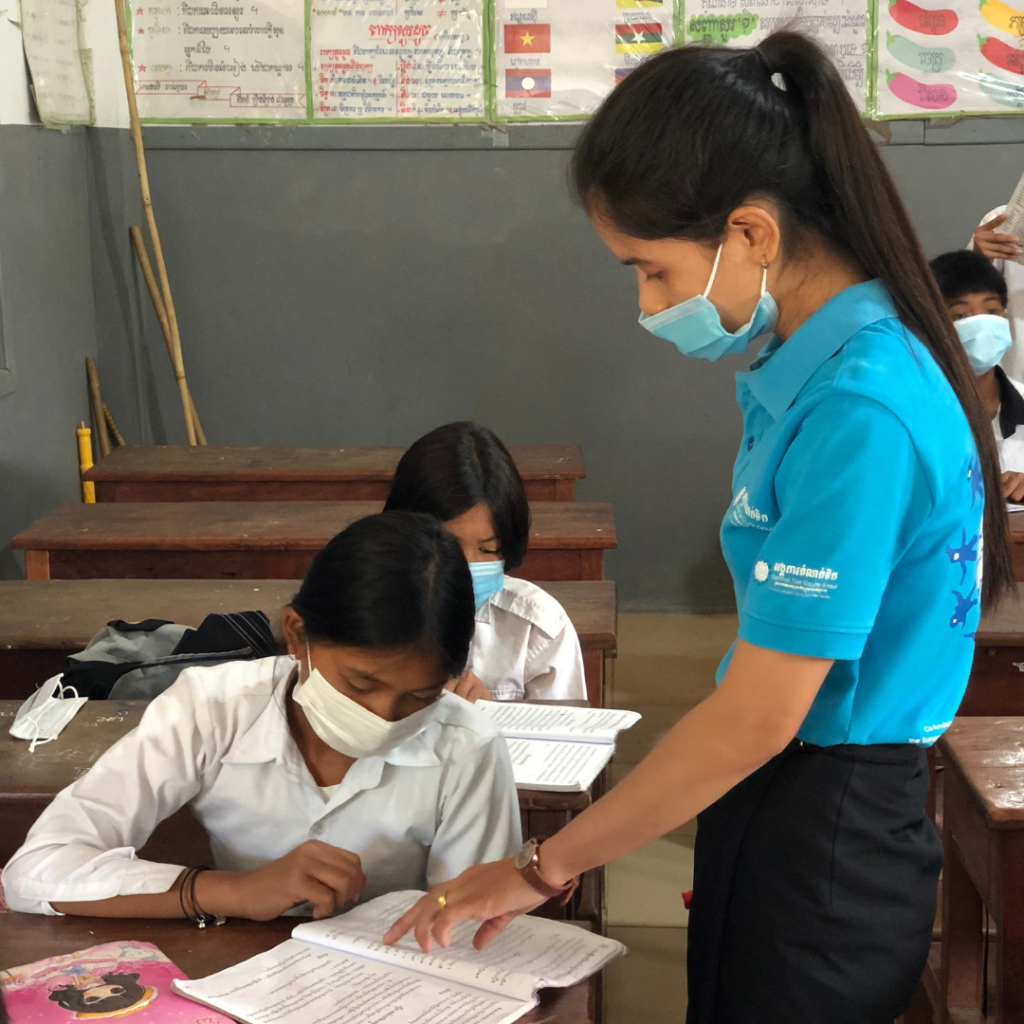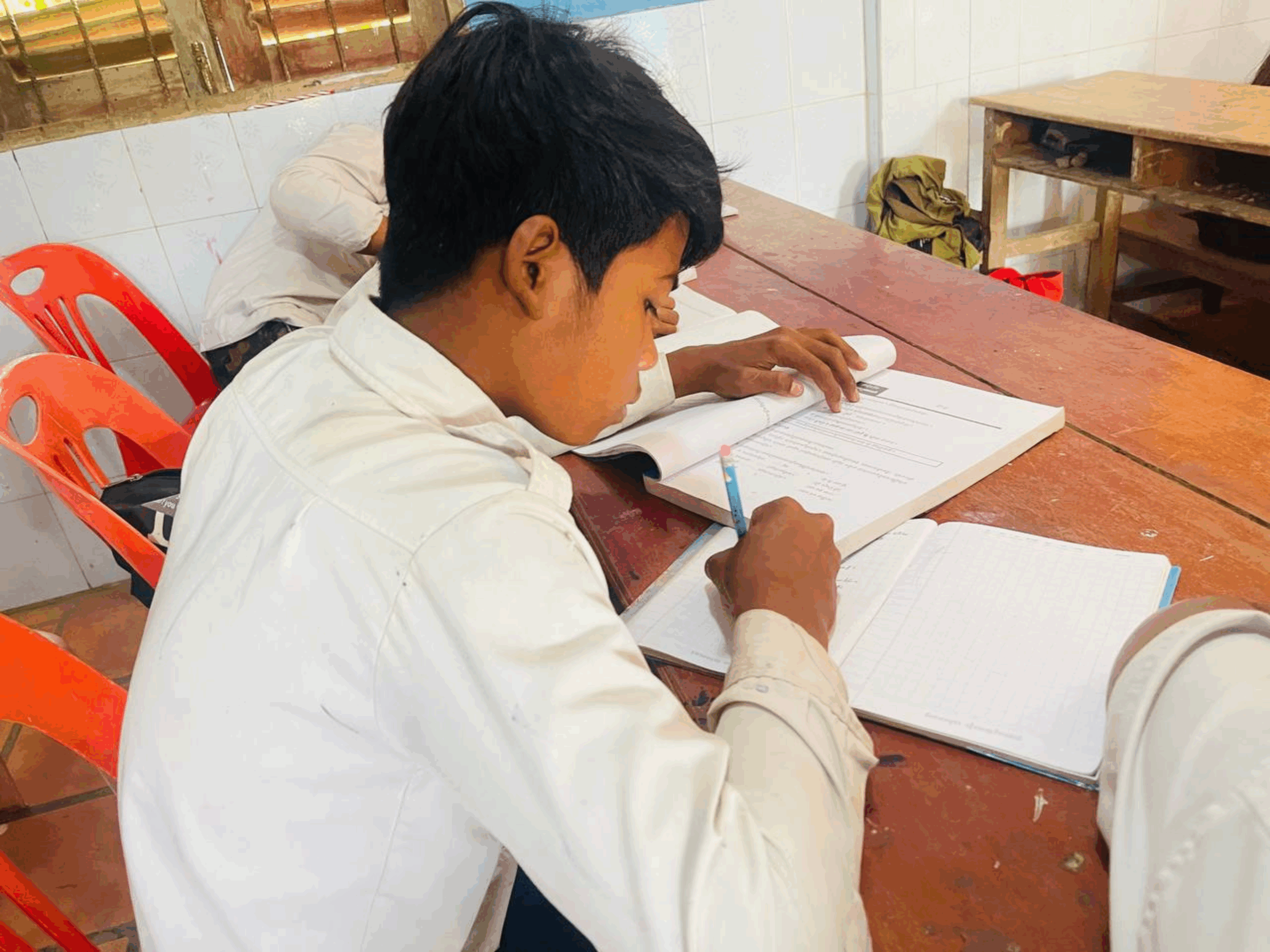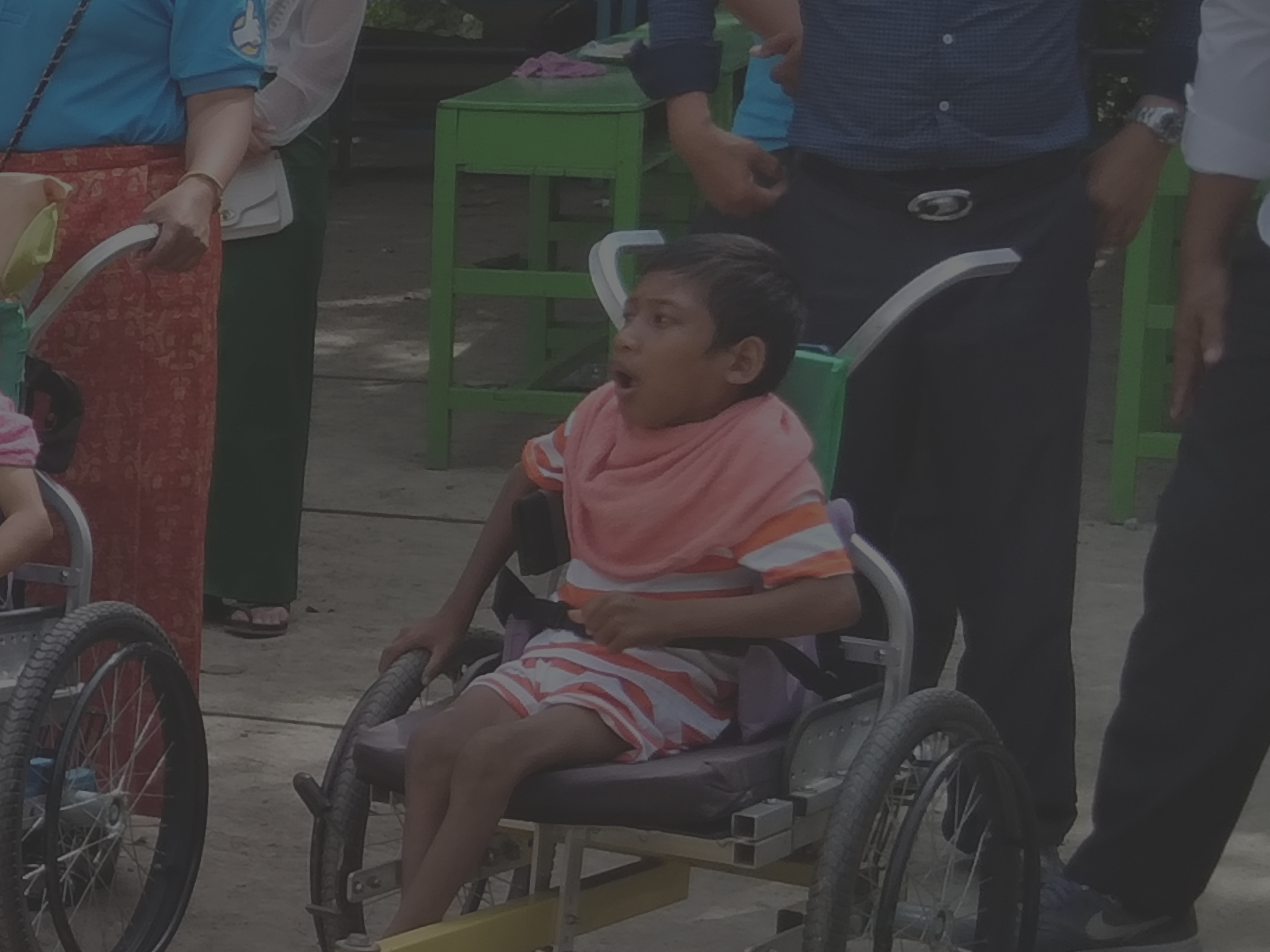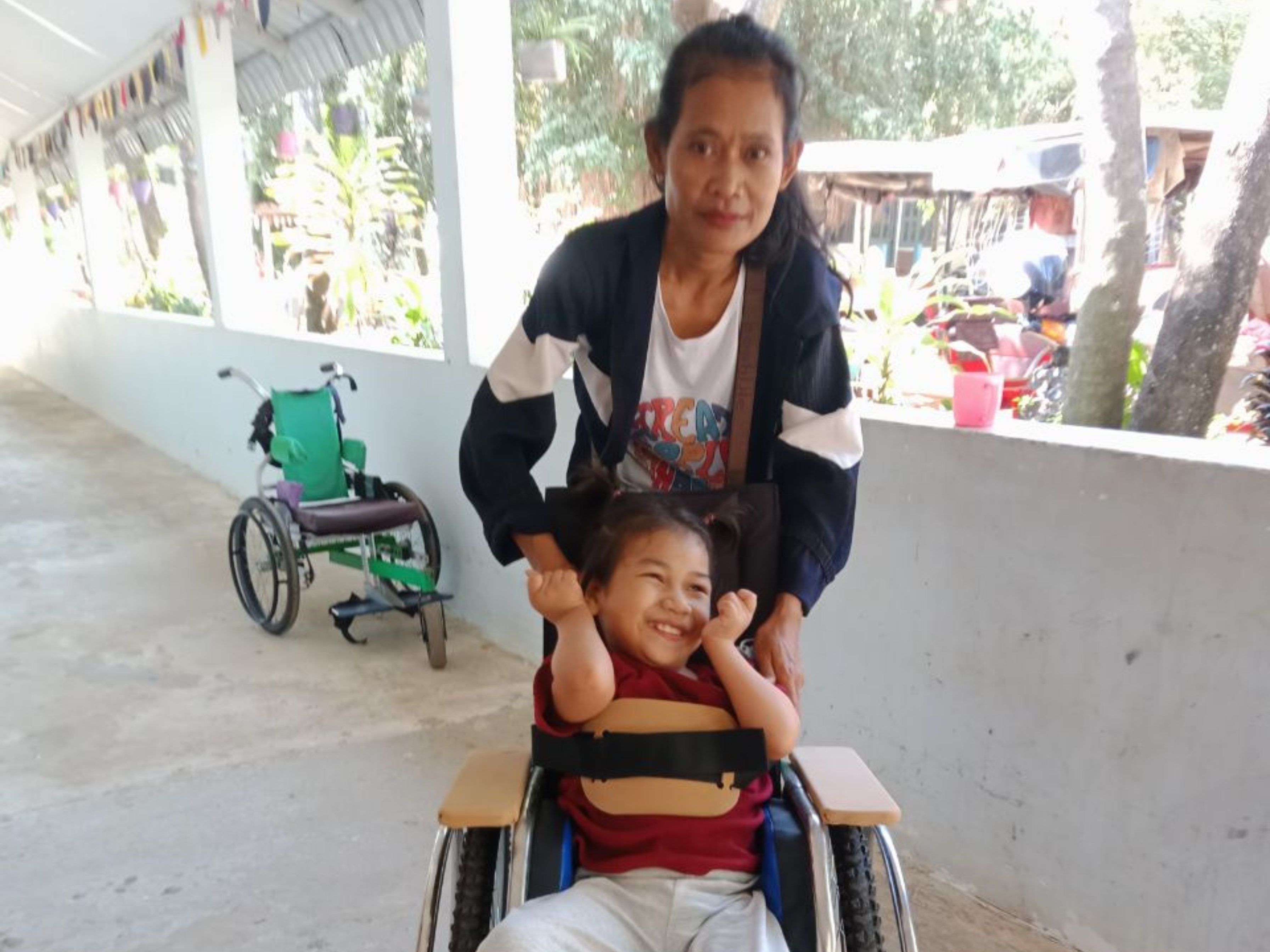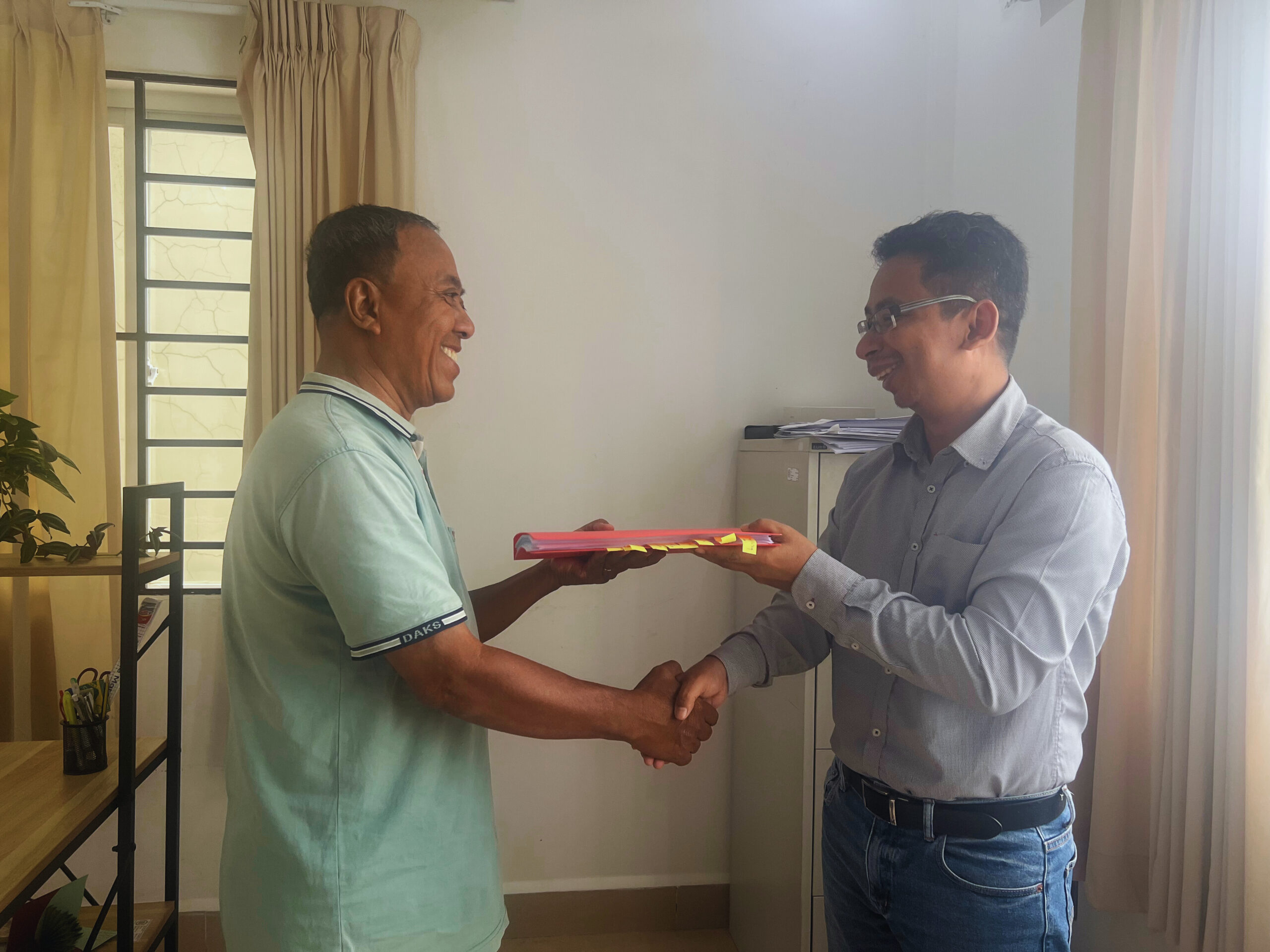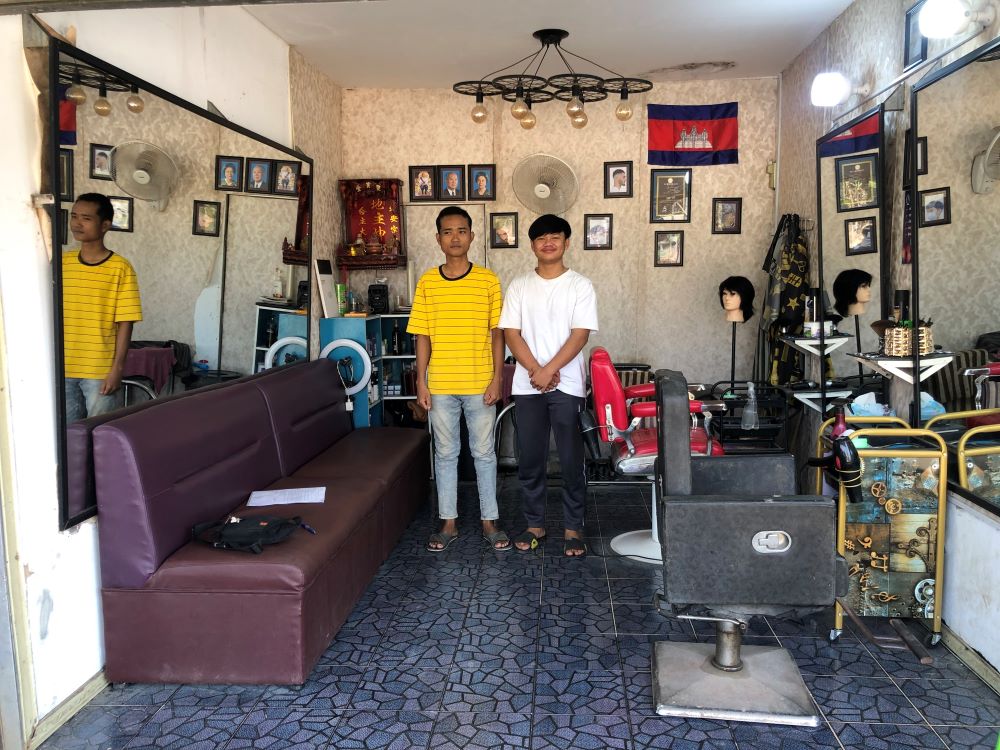
Safe Migration

28% of identified victims of trafficking globally are children.

1 in 8 of the world’s migrants are children.
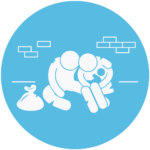
Half of Cambodians live on less than $2/day. This exacerbates the need for migrating in search of better wages.
Prevention
In order to prevent the unsafe migration of children, parents must have access to a steady income and a stable job. Therefore, our preventative approach focuses on capacity building, job-skills training, and education about the dangers of unsafe migration.
The Future’s Office (FO) is our first point of reference for families at-risk of unsafe migration. The FO provides support and advice for those seeking employment as well as soft skills and vocational training to adults and young people in Poipet.
In addition, DT established an Income Generating Activities (IGA) project at the FO, which offers training on entrepreneurship and small loans for those over 18 years old.
The FO accepts both walk-in clients and those referred through DT’s other projects. The goal of this project is to increase job skills capacity among the population in Poipet to reduce dependency on migratory labour, which in turn, mitigates many root causes of human trafficking.
Protection
Damnok Toek has a team of social workers conducting outreach four times per day, seven days per week.
The social workers engage with street-involved children, youth, and their families as well as visit vulnerable families from the community. They provide food and other provisions while informing community members about other services Damnok Toek offers. For instance, they ensure street-living children are aware of the Drop-In Centre (DIC) where they can eat, shower, and sleep for free as well as talk to the team for longer-term support.
We provide training to community members, educators, vendors, etc. through the ChildSafe Alliance to protect children from abuse and prevent them from being placed in abusive situations.
Since protecting children from unsafe migration begins with parents and families, our social workers conduct Skillful Parenting Workshops. These cover a range of topics but specifically teach parents how to identify traffickers who often target less educated parents.
Rehabilitation
Child Migrant Office
The Child Migrant Office provides support to children and youth victims of unsafe migration through identification and emergency management on a case-by-case basis. It is run through the Poipet Transit Centre (PTC), which is the main point of entry for Cambodian citizens deported from Thailand.
Due to a lack of infrastructure, many of the children and youth brought to the PTC are likely to be re-trafficked without the course of intervention. To prevent this, DT works in collaboration with Friends International and Krousar Thmey at the CMO to identify unaccompanied children and provide them with case management.
Through case management, these children are either reintegrated into their families or, if family reunification is not a viable option, referred to Damnok Toek’s Reception Centre or to other partner NGOs.

Alternative Care
Family reintegration is our first solution for children who come into our care. However, this is not always a realistic or safe option for the child. Therefore, we established centres of alternative care to provide immediate care, shelter, education, and resources to children as we assess the possibilities for family reintegration. Children receive both group and individual counselling sessions and are taught different techniques for recovering from past trauma. Our alternative care program is divided into three facilities to best provide for the needs of children in a range of situations.
This project has two main features:
Our RC provides immediate and emergency care to children under 16 years old who have recently been returned to Cambodia from Thailand. The RC offers the short-term provision of necessary services while options for family reintegration are being assessed by social workers. While at the RC, children have a safe place to stay as well as access to education, healthcare, and psychosocial support.
The TCF provides the same services as the RC but to children under 16 years old for whom family reintegration was not a viable option. Children here receive long-term accommodation, education, counselling, and medical care from our staff who are on location 24/7. Social workers continue to assess the viability of family or kinship reintegration; however, children at the TCF receive care that is focused on long-term recovery from trauma and the development of life skills to facilitate their individual societal reintegration process.
Group Homes (GH)
The Group Homes program provides a safe space for youth over 16 to live after they are too old to be housed at the TCF but are still too young to be left completely independent. GHs provide a semi-independent living arrangement to adolescents who are enrolled in either school or vocational training.
While living in the GHs, they remain under the supervision of social workers who ensure they are keeping up with their studies or training. Damnok Toek continues to support these young adults until they either graduate from higher education or secure a stable job.
Reintegration
We believe that reintegration with family members should always be the first option for children who are victims of unsafe migration, provided it is safe to do so. Our staff attempts to locate the families of children deported from Thailand and reunite them through the CMO. However, in situations where reintegration is either impossible or is not the safest option, we have other programs to ensure children have access to opportunities to further their success.
Children who come into our care from the RC, TCF, or the DIC in Poipet or who have been identified by our ChildSafe Agents have the opportunity to be enrolled in our Non-Formal Education program.
Our social workers provide case management and conduct follow-ups with children and youth survivors of human trafficking and exploitation via our Outreach missions. We also provide vocational training through our Future’s Office in Poipet.


